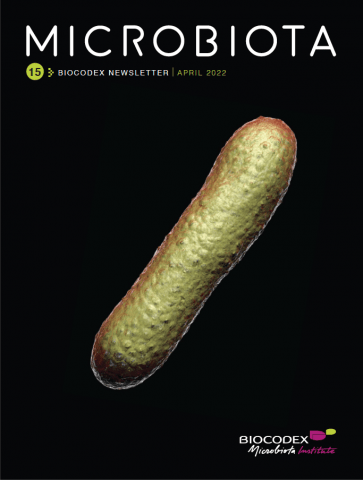
Microbiota 15 - April 2022
Dear readers, Current epidemiological studies estimate that more than one in 160 people worldwide presents with an autism spectrum disorder (ASD)1. The scientific community is proceeding cautiously with these disorders, whose pathophysiological mechanisms are still poorly understood. Autism spectrum disorders, classified as neurodevelopmental disorders (NDD), cover a wide variety of clinical situations.
One of these clinical situations is known to us: 30 to 50% of people with ASD present gastrointestinal symptoms (abdominal pain, diarrhoea, constipation, etc.) which affect their quality of life. The hypothesis of a link between intestinal microbiota and autism spectrum disorders therefore seems to be taking shape and is arousing keen interest in the scientific community. It is true that the intestinal microbiota is often described as our ‘second brain’ and that certain neuropsychiatric diseases such as depression are associated with imbalances in the intestinal microbiota. We should also remember this experiment: mice that were transplanted with intestinal bacteria from people suffering from ASD would in turn develop “autistic behaviour”. The evidence for the relationship between gut microbiota and ASD is mounting. The article written by Prof. Richard Delorme, winner of the Biocodex Foundation’s international grant in 2021, and his team, adds to this already rich body of evidence.
The article goes even further and suggests an involvement of the intestinal microbiota in human behaviour and cognition. Will the intestinal microbiota one day help to unravel the mystery of autism? If, as the authors indicate, larger randomised double-blind trials must be conducted to confirm the effectiveness of microbial therapies in ASD, the intestinal microbiota is a tangible lead to be explored to understand the causes and mechanisms of autism. And thus give hope to thousands of children.
Enjoy your reading.
BMI 22.09
1: https://www.who.int/fr/news-room/fact-sheets/detail/autism-spectrum-disorders


